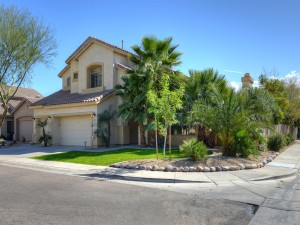
A vacation home should be a paradise — a safe haven from the bustle and stress of everyday life. For those who rent out their properties for parts of the year, vacation homes also can be an additional source of income. But protecting those assets from natural and manmade disasters takes work and money.
The smart vacation homeowner makes sure the second home doesn’t generate more stress than it relieves. The right insurance coverage can go a long way toward putting an owner’s mind at ease.
Standard homeowners policies won’t do it all
You may think the homeowners insurance policy on your primary residence fully protects you and your possessions. Many standard policies do include some coverage for personal property at an additional residence, but protection for a second home typically doesn’t go any further than that unless you’ve purchased a second policy.
If you took out a mortgage on your vacation home, your lender likely required you to buy a separate home insurance policy. However, vacation homes come with unique risks, so standard coverage may not include all the protection you really need.
Some insurance carriers offer coverage options specifically designed for vacation homes. For others, you’ll have to navigate the fine print yourself. Here are a few of the biggest risks and potential coverage gaps for vacation home owners, as well as suggestions on how to overcome them.
Location, location location
Unfortunately, the qualities that make a location perfect for your dream home are often the same qualities that make it an insurance nightmare. Consider an oceanfront property, for example. In addition to being susceptible to hurricanes — wind and hail damage account for nearly half of all homeowners insurance claims per year, according to the Insurance Information Institute (III) — they also frequently experience flooding, which is not covered under most standard policies.
Mountain homes have a problem, too; standard policies typically exclude all forms of earth movement, including landslides.
Vacancies leave you vulnerable
If your vacation home is not your primary residence, it’s probably safe to assume it will sit unoccupied for several weeks or months every year. In terms of risk, consider the possibility of a small electrical fire or a leaky pipe in an empty house. Both could escape notice until they become serious threats. Additionally, burglars and trespassers are more likely to target homes that appear unoccupied.
Considering the average costs per claim for these three hazards combined (fire, water damage and theft) totaled more than $44,929 in 2013 (according to the III), it’s certainly worth it to take a few easy precautions to ensure you won’t face these costs on your own.
First, make sure your policy’s coverage limits line up with your home’s current replacement cost. Then see that your electrical and plumbing systems are up to date and in good shape. It’s not a bad idea to hire a professional for a thorough inspection.
Leasing liabilities
One way to circumvent the risks of leaving your vacation home vacant is to rent it to tenants while you’re away. But don’t assume you’ll just pocket easy money when you do. Neglecting to take proper precautions as a landlord also could end up costing you in the long run.
Consider this: If one careless tenant leaves the stove on, damages your belongings or is injured while on your property, you could face the entire cost of cleanup, hospital bills and even lawsuit expenses — a tab that could easily top $30,000[1] — on your own.
Homeowners insurance might cover you if you only occasionally rent out your home for short periods of time. However, it’s still a good idea to cover all your bases with background checks and lease agreements. You also should consider investing in an umbrella policy to help protect yourself against the extra liabilities of having tenants.
If your vacation property is occupied by tenants for more than 4 weeks out of the year, it’s safe to assume standard coverage isn’t going to cut it. In order to protect yourself, you’ll need landlord’s insurance. Policies range from simple coverage for things such as fire and vandalism to open peril policies, which cover all circumstances except those specifically excluded in your policy.
It’s not all bad news
If your dreams of enjoying a vacation home haven’t been crushed yet, there is some good news. Vacation homes typically qualify for the same safety discounts as your primary home, so responsible investments such as deadbolt locks, home security systems and other upgrades are typically met with relatively lower premiums.
And don’t worry. Once you’ve taken care of all the paperwork, the hardest part of owning a vacation home is having to leave at the end of the season.
Please note that this Scottsdale Real Estate Blog is for informational purposes and not intended to take the place of a licensed Scottsdale Real Estate Agent. The Szabo Group offers first class real estate services to clients in the Scottsdale Greater Phoenix Metropolitan Area in the buying and selling of Luxury homes in Arizona. Award winning Realtors and Re/MAX top producers and best real estate agent for Luxury Homes in Scottsdale, The Szabo group delivers experience, knowledge, dedication and proven results. Contact Joe Szabo at 480.688.2020, info@ScottsdaleRealEstateTeam.com or visit www.scottsdalerealestateteam.com to find out more about Scottsdale Homes for Sale and Estates for Sale in Scottsdale and to search the Scottsdale MLS for Scottsdale Home Listings.



